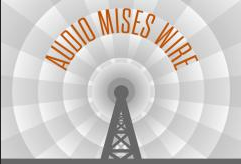 How We Might Respond to a Panedemic Were Society Not So Dominated by the State
How We Might Respond to a Panedemic Were Society Not So Dominated by the State
“There are no libertarians in an epidemic” crowed Atlantic reporter Peter Nicholas back on March 10, as he listed the numerous economic interventions the Trump administration was undertaking in the wake of the mounting COVID-19 crisis. This intervention, Nicholas declared, just goes to show you that whatever antigovernment talk one might talk, government intervention in the economy is “nothing new and, as may well prove the case this time around, it’s often necessary.”
 Why Congressional “Oversight” of the Bureaucracy Is No Such Thing
Why Congressional “Oversight” of the Bureaucracy Is No Such Thing
I have long been fascinated by both public policy and the interesting crooks, crannies, and oddities found in the English language. Recently, I came across one such tidbit which connected both of those interests. Hugh Rawson, in “Janus Words—Two-faced English” on the Cambridge Dictionary blog, was discussing a number of English words that are sometimes called Janus words, after the Roman god depicted with two faces pointing in opposite directions, because they have opposite meanings within themselves (e.g., cleave, hew, sanction, scan, peruse).
 Two Analogies for the Economy That the Media Keeps Getting Wrong
Two Analogies for the Economy That the Media Keeps Getting Wrong
In an attempt to maintain the lockdown and their authority over our lives, politicians, health experts, and the mainstream media have been misusing some unusual analogies to describe the current economy. By using these analogies, our political overlords hope they can continue to keep the economy shut down, force companies to produce what the government forgot to purchase before the virus hit, and toss out trillions of dollars of handouts and bailouts to their friends.
 Defining “Inflation” Correctly
Defining “Inflation” Correctly
Inflation is typically defined as a general increase in the prices of goods and services—described by changes in the Consumer Price Index (CPI) or other price indexes. If inflation is a general rise in measured prices, then why is it regarded as bad news? What kind of damage can it inflict? Mainstream economists maintain that inflation causes speculative buying, which generates waste.
 Michael Flynn, Lori Loughlin, and the Permanent Culture of Prosecutorial Abuse
Michael Flynn, Lori Loughlin, and the Permanent Culture of Prosecutorial Abuse
When US attorney general William Barr recently announced that the Department of Justice was reversing course and dropping all charges against former Trump adviser Michael Flynn, the response from Democrats, the mainstream news media, and Never-Trump Republicans such as David French was thermonuclear, to put it mildly.
 There’s No End in Sight to the Zombie Economy
There’s No End in Sight to the Zombie Economy
The United States was waiting for the zombie apocalypse. The country was given a coronapocalypse instead. But could the two events merge and provide the nation with a dangerous economic trend? Corporate America’s worst-kept secret had been the swelling number of zombies kept on life support and hidden away during the boom phase of the business cycle.
 An Economy That Cannot Allow Stocks to Decline Is Too Fragile To Survive
An Economy That Cannot Allow Stocks to Decline Is Too Fragile To Survive
The fragile ice shelf of speculative bets and debt clinging to the mountainside is making strange creaking sounds– will you listen or will you ignore it because ‘the Fed has our back’? Feast your eyes on the chart below of the Nasdaq 100 stock market Index, which is dominated by the six FAAMNG (rhymes with "famine") stocks: Facebook, Apple, Amazon, Microsoft, Netflix and Google which now account for over 20% of the entire U.S. stock market’s capitalization.
 Swisscom network experiencing problems
Swisscom network experiencing problems
Since 11:50 am on 26 May 2020, Swisscom’s mobile and landline networks have been experiencing problems. Landline and mobile network calls are currently impaired for business and private customers, according to Swisscom.









